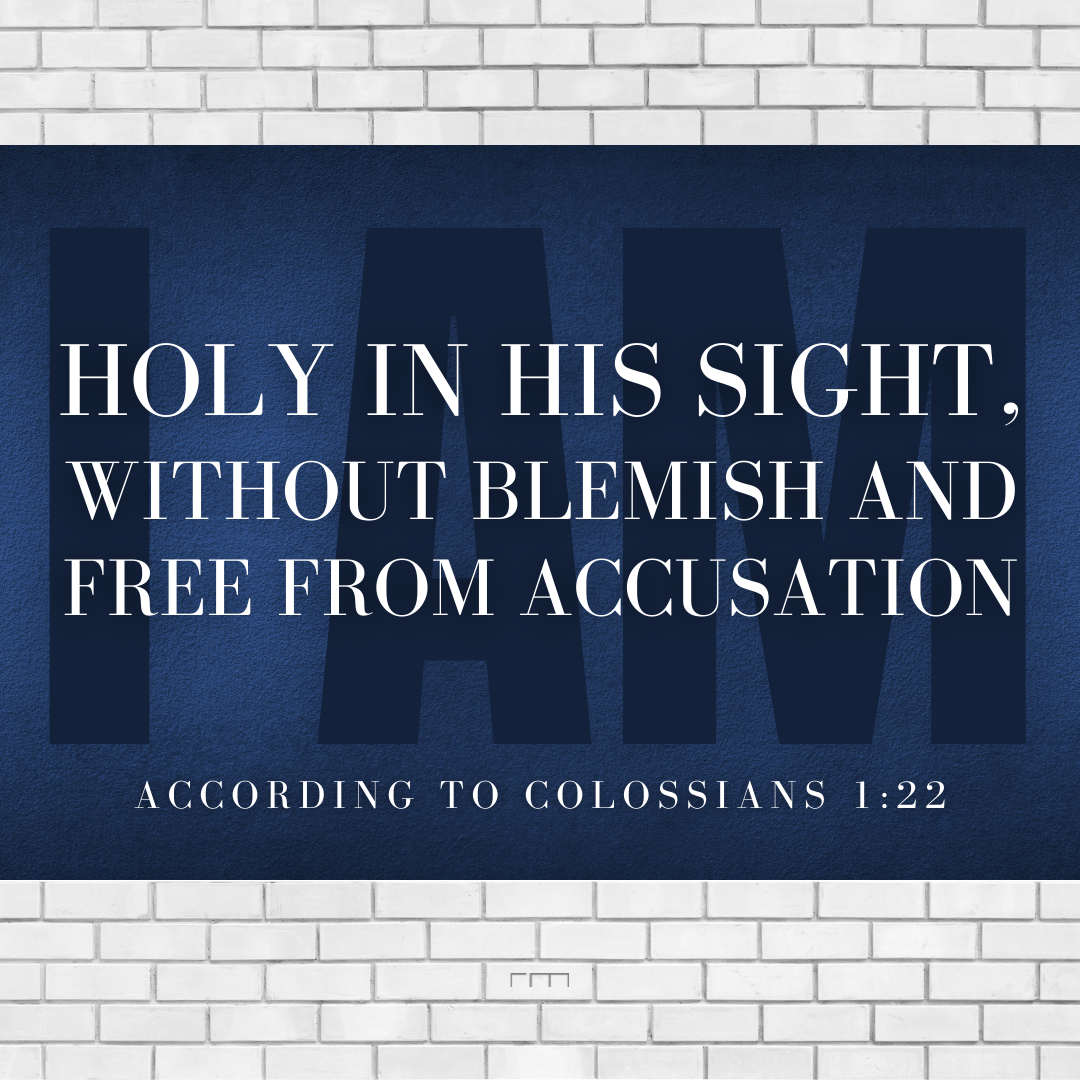25 April 2022
…for all have sinned and fall short of the glory of God, and all are justified freely by his grace through the redemption that came by Christ Jesus. (Romans 3:23-24)
"Justified freely…" Wow, that sounds good.
Though some consider this explanation too simple, I still like it: When I’m justified before the Lord by His grace, it’s “just as if I’d” never sinned, in that I’m now able to have a relationship with Him. My sin--past, present, and future--is no longer in the way.
If I can say so without sounding disrespectful: This is a crazy concept.
It’s one thing to say that I’m guilty of sin and Jesus died the death I deserve. That’s a formula I can understand: I sin, which separates me from the Giver of life--I’m heading toward death. Though Jesus never sinned, He willingly died in my place, and in rising from death He opens a way to new life.
But am I hearing this right? God says He wants to consider me, relate to me, as being without sin? As holy with all my stains removed? This is how our holy God can have a relationship with unholy us…through Christ. And apparently this is something He very much wants to do.
But now he has reconciled you by Christ’s physical body through death to present you holy in his sight, without blemish and free from accusation—if you continue in your faith, established and firm, and do not move from the hope held out in the gospel. (Colossians 1:22-23)
“Free from accusation…” What does this mean for us? It means the scales have been forever shifted in our favor. What scales am I talking about? I’m talking about the scales in our heads that try to track our good deeds and our bad ones.
We fool ourselves into thinking at times that our good deeds may one day outweigh our bad deeds. But it will never be true. Even our best deeds are defective and far from holy or being able to make us worthy of communing with God.
And besides, this is not the way God saves. If we are saved from the consequences of our bad deeds, it won’t be because they were outweighed by our good deeds. It will be because as far as God is concerned, they’re gone. Check this out:
He took this list of sins and destroyed it by nailing it to Christ’s cross. (Colossians 2:13-14 TLB)
The charge against us, the record of our wrong, has been taken away, nailed to the cross of Jesus. God’s way of saving sinners is not by weighing our deeds but canceling them, not by balancing the records but blotting them out so they can no longer condemn us, no longer separate us.
This is what Christ suffered and died to accomplish. Free to us, it cost Him everything. And most amazingly, He thinks we’re worth it.
TAKING A GOOD LOOK…
This video introduced me to visio divina—divine seeing. Like lectio divina (divine reading), this is all about slowing down and prayerfully meditating on what we’re looking at—in this case, Rembrandt’s “Storm on the Sea of Galilee.”
“It is a bad world, Donatus, an incredibly bad world. But I have discovered in the midst of it a quiet and good people who have learned the great secret of life. They have found a joy and wisdom which is a thousand times better than any of the pleasures of our sinful life. They are despised and persecuted, but they care not. They are masters of their souls. They have overcome the world. These people, Donatus, are Christians...and I am one of them.”
Cyprian (210-258 A.D.), a North African bishop, in his “Letter to Donatus”
I recently came across this excellent exposition from Diane Chen on what it means to carry one’s cross daily:
“In the ancient Greco-Roman world, crucifixion signified the epitome of shame, over and above its cruelty as a means of capital punishment. Criminals were crucified naked, tied or nailed to a horizontal cross beam, with barely a piece of wood on the vertical beam to support their feet and their entire body weight. Many died by asphyxiation, if not severe loss of blood. It was such a slow and disgraceful death that even the word crucifixion was not to be mentioned in polite company. Cross-bearing as a requirement of discipleship meant ostracism and death. Condemned to death by crucifixion, the victim had to carry the cross beam to the place of execution. ‘Taking up the cross implied ‘a dead man (or woman walking.’ Jesus requires all would-be followers to take up their cross daily, dying repeatedly, day by day. Jesus is not interested in any masochistic glorification of shame and humiliation. Self-denial means letting go of everything that stands in opposition to God. It requires that one’s identity, priorities, attitudes and actions be reshaped and reformed. It is the relinquishment of all worldly values, possessions, and habits that stand in the way of obedience and fidelity to Jesus. This level of commitment will invite ridicule, misunderstand, and relation – hence a daily cross-bearing.”
(You have full permission to download, save, and share.)
CALL ME A REBEL ANYTIME…
A PRAYER…
“God, I can barely believe You see me blemish-free, but I’m so glad You do.”





